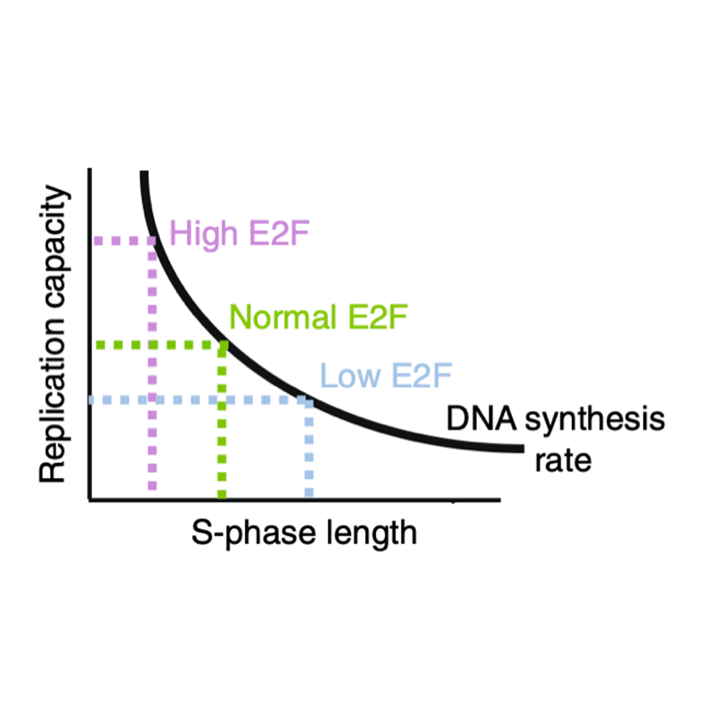New publication in Nature Communications for de Bruin lab
In order for a cell to proliferate with fidelity, it must cycle through two non-overlapping events - replication of the genomic DNA during S phase and the segregation of the duplicated DNA into two genetically identical daughter cells during M phase. DNA replication is tightly regulated during S-phase. S-phase length is determined by DNA synthesis rate, but what controls or limits the DNA replication rate remained largely unknown. Work published by the de Bruin lab in the latest issue of Nature Communications shows that cell cycle regulated transcription, dependent on E2F transcription factors, determines the DNA replication rate and thereby S phase length. E2F-dependent transcription regulates the DNA replication capacity of a cell, which represents the actual amount of DNA synthesised at a given time during S-phase, thereby controlling the time it takes to duplicate the genome. Overall their work suggests that the tight regulation of E2F transcription in S phase is an important determinant in DNA replication control and genomic stability, which has important implications for basic biology and the understanding of cancer.
Read the article here.
 Close
Close


